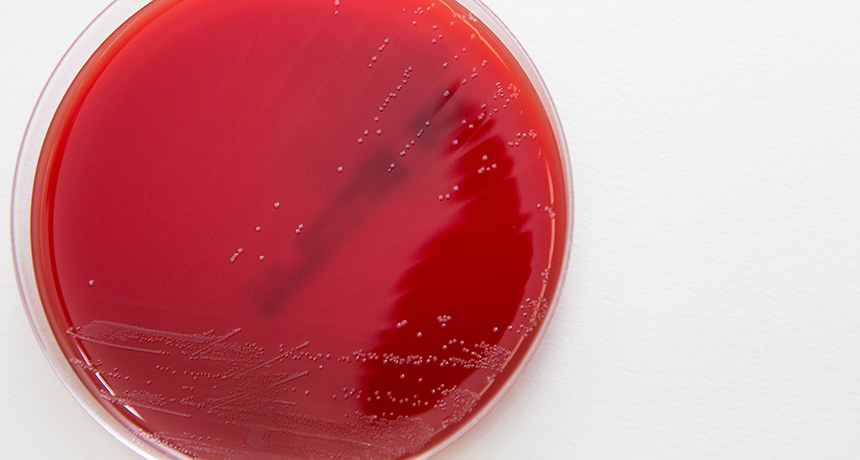These bacteria may egg on colon cancer

A bad bacterium may make colon cancer worse.
Streptococcus gallolyticus spurred growth of some colon cancer cells in lab dishes and in mice, researchers report July 13 in PLOS Pathogens. S. gallolyticus stimulates a biochemical chain reaction that scientists already knew is involved in the development of colon cancer, the researchers discovered.
Bacteria had to be in direct contact with tumor cells to speed growth, but exactly how the bacteria do that isn’t yet known. Further investigation could help researchers find ways to block the microbe’s action, leading to better treatments for colorectal cancer, says microbiologist Yi Xu of Texas A&M University Health Science Center in Houston.
People who have heart valve or blood infections of S. gallolyticus (previously known as S. bovis) often also have colorectal tumors. The bacterium has also been found growing on tumors in some colorectal cancer patients. But doctors couldn’t tell from association studies whether the bacteria were egging on tumors or were innocent bystanders.
Xu and colleagues grew S. gallolyticus in lab dishes with several different types of human cells. Three types of colon cancer cells grew faster, producing about 50 to 60 percent more cells within 24 hours, with the bacteria than they did when cultured with no bacteria or with a harmless, milk-fermenting bacterium called Lactococcus lactis. Normal human colon cells, kidney cells, lung cancer cells and two strains of colon cancer cells didn’t respond to the bacteria. Those results could mean that the bacterium doesn’t spur on all colon cancers, says Cynthia Sears, an infectious disease specialist at Johns Hopkins University School of Medicine who was not involved in the work. Finding out what makes some cells more vulnerable to the bacteria will be important for future studies, she says.
“It deserves a deeper look,” Sears says.
Colon cancer‒prone mice infected with S. gallolyticus had more and bigger tumors than those found in mice inoculated with L. lactis or with a saline solution.
Xu and colleagues don’t know all the details of how S. gallolyticus promotes colon cancer growth. But the researchers discovered that when the bacteria glom onto responsive colon cancer cells, the microbes boost a signal sent through a relay chain known as the beta-catenin pathway. That pathway was already known to be involved in generating colorectal tumors. The researchers have some evidence that S. gallolyticus may also work through other chemical signaling pathways to enhance colon cancer growth.
Whether the bacterium can initiate colon cancer isn’t clear, Xu says.
Researchers will also need to investigate how S. gallolyticus works with or against other microbes that live in the colon, says Ran Blekhman, a geneticist at the University of Minnesota in Minneapolis. The study is part of a growing trend away from merely associational studies toward discovering how microbes function in the body, he says. “This is basically the next step in microbiome research.”